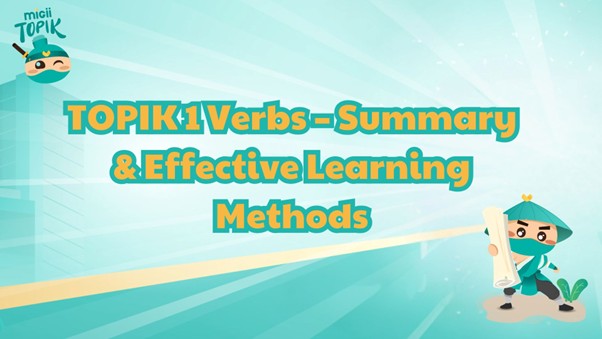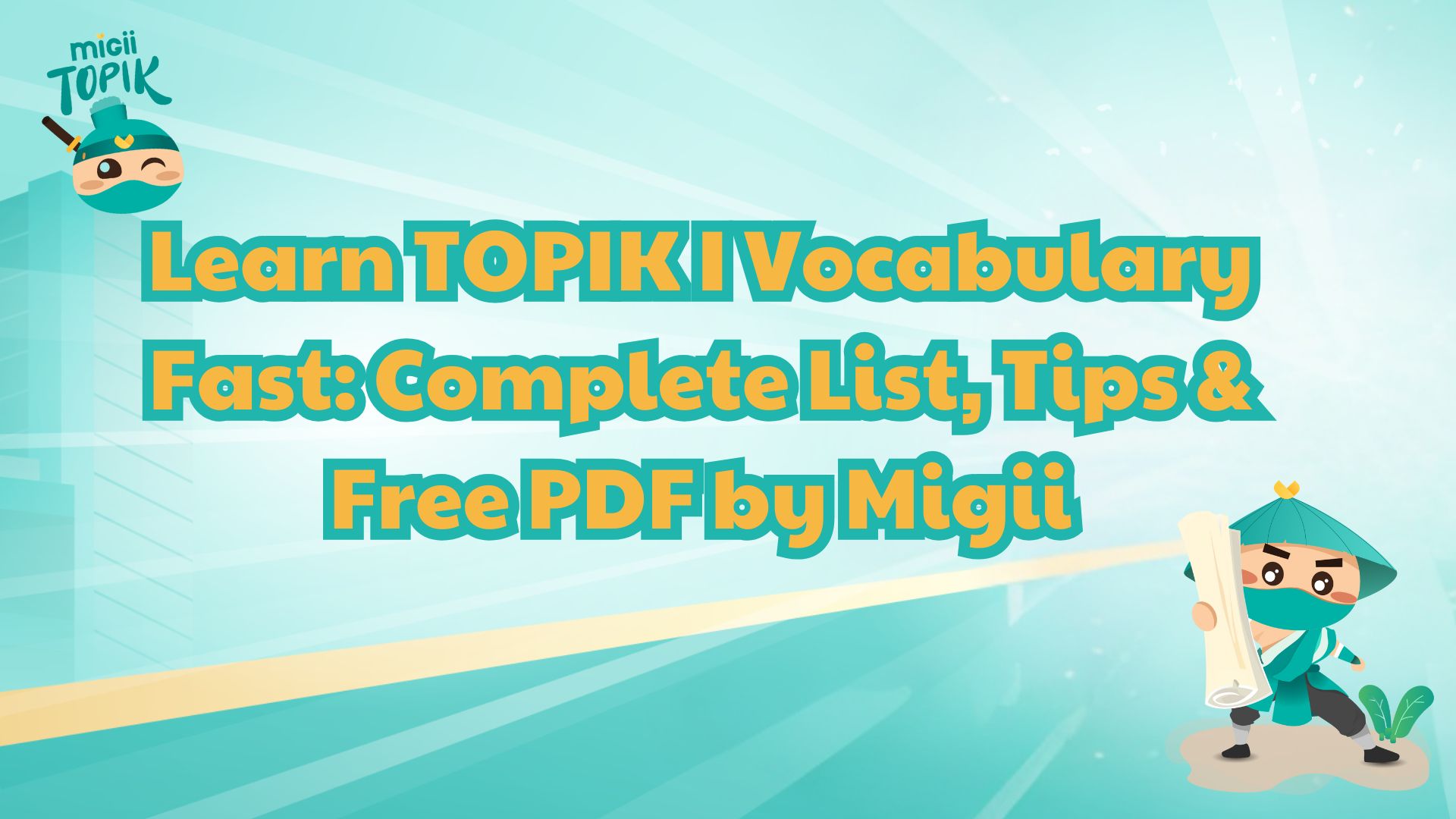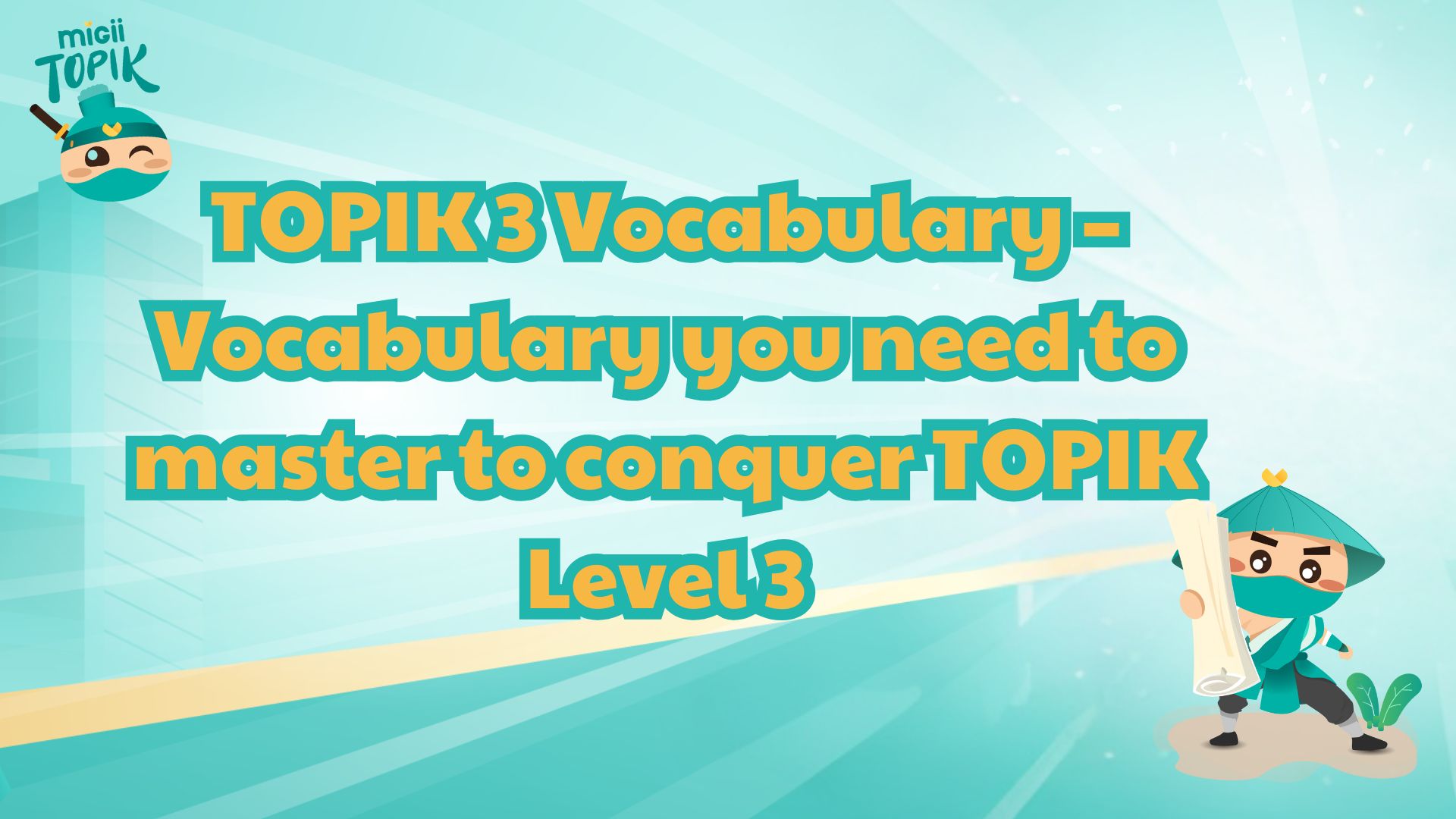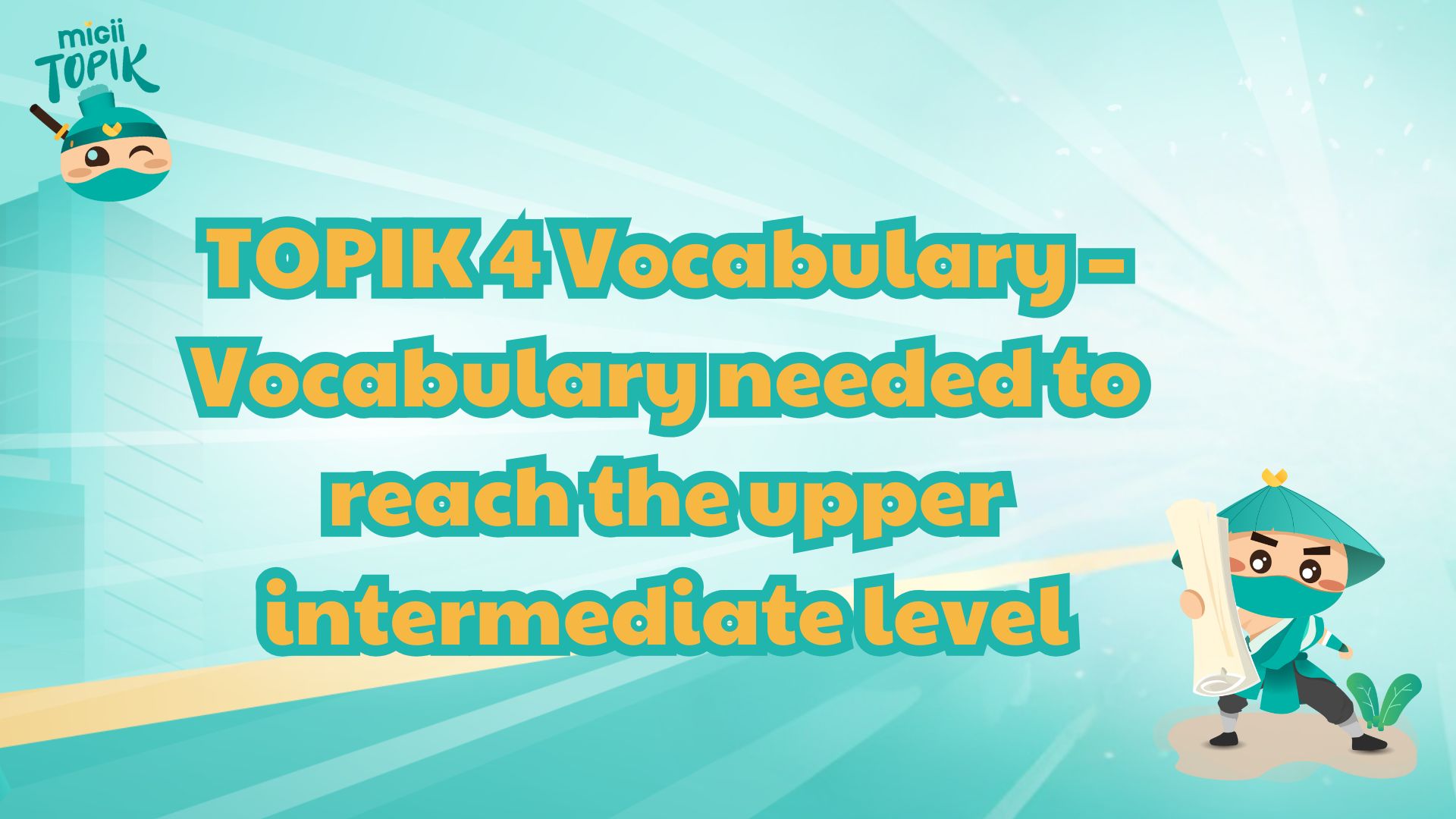To pass the JLPT N1 exam, a solid command of vocabulary is essential. This guide from Migii JLPT outlines how many words you need to know, provides a comprehensive JLPT N1 vocabulary list, and introduces trusted study materials and realistic tips to help you learn more effectively.
JLPT N1 vocabulary
How Many Vocabulary Words Do You Need for JLPT N1?
If you're wondering "JLPT N1 how many words" you need to study to pass the exam, the general consensus from various study materials and past test experiences is around 1.000 to 1.200 JLPT N1 words. This set includes advanced vocabulary often found in academic readings, opinion pieces, and nuanced conversations.
Unlike lower levels, JLPT N1 vocabulary is not just about memorizing individual words. It includes idiomatic phrases, subtle usage differences, and expressions with abstract or emotional nuance. To retain and use these words effectively, it's important to learn them in context rather than in isolation.
Additionally, most JLPT N1 words involve complex kanji, many of which have multiple readings. That means you’ll also need to be familiar with both the On-yomi (Chinese reading) and Kun-yomi (native Japanese reading) for accurate understanding and pronunciation.
So, how many words for JLPT N1 are truly enough? It depends not only on the number but also on how well you can use them across reading, listening, and test-taking situations. Memorizing hundreds of words won’t help much if you don’t understand how to apply them correctly.
If you’re just starting your preparation, focus first on high-frequency JLPT N1 vocabulary that commonly appears in real exam questions. Combine your vocabulary study with grammar and kanji practice to approach the exam with a stronger, more balanced foundation.
How many words are in the JLPT N1
JLPT N1 Vocabulary List by Migii JLPT
Migii JLPT offers a carefully curated JLPT N1 vocabulary list featuring over 1.000 essential words selected from actual exam questions, official textbooks, and practical teaching experience. Each word comes with an accurate Vietnamese translation, kanji and hiragana readings, and real-life example sentences to help learners understand usage in context.
If you're looking for a JLPT N1 word list that is comprehensive, practical, and exam-focused, Migii’s materials are a reliable choice to support your N1 preparation.
Link download JLPT N1 vocabulary list PDF:
Recommended Study Materials for JLPT N1 Vocabulary
In addition to the JLPT N1 vocabulary list compiled by Migii JLPT, which includes example sentences and well-organized categories, you can boost your learning by combining it with other reliable resources. Below are 3 effective materials often used by learners aiming to pass N1.
Nihongo So-Matome N1
This textbook follows a six-week study schedule, covering about 20 to 30 words per day. Vocabulary is grouped by theme and supported with real-life examples, helping you remember and apply new words more effectively. The book also includes weekly reviews and short quizzes for self-assessment.
Recommended for learners who prefer a structured, time-based approach to mastering the JLPT N1 vocabulary.
Link download Nihongo So-Matome N1:
Kanji Look and Learn
This book is designed for visual learners who want to reinforce difficult kanji found in the JLPT N1 word list. Each kanji comes with illustrations, meanings, readings, and sample sentences. The visuals make it easier to remember complex characters and understand how they are used in vocabulary.
Suitable for learners who want to combine kanji revision with vocabulary practice.
Link download Kanji Look and Learn:
Kanji N1: Topik Psikologi & Emosi
This is a PDF document that focuses on vocabulary and kanji related to emotions, psychology, and cognitive themes. These topics often appear in JLPT N1 reading passages. The content is academic in nature and helps learners improve comprehension in higher-level texts.
Ideal for those preparing for the JLPT N1 who want to strengthen their understanding of abstract and analytical vocabulary.
Link download Kanji N1: Topik Psikologi & Emosi:
Recommended study materials
You can explore even more Japanese learning materials for the JLPT N1 vocabulary and beyond on the Migii website’s Japanese Learning Materials section.
5 Practical Tips for Learning JLPT N1 Vocabulary
To master them effectively and apply them correctly during the test, you’ll need a solid and realistic study strategy. Here are five proven tips that many learners have successfully used to improve their JLPT N1 vocabulary:
Review Vocabulary Three Times a Day
Don’t just study once and forget. After learning new words in the morning, briefly review them at noon and then again more thoroughly in the evening before bed.
This repetition helps your brain transfer words to long-term memory. It’s especially useful for difficult JLPT N1 words that require deeper processing.
Prioritize the Most Frequently Tested Words First
Instead of trying to memorize the entire JLPT N1 vocabulary list from the beginning, focus on words that appear most often in past exams and reading passages.
Migii JLPT offers a structured JLPT N1 vocabulary PDF sorted by frequency of appearance, allowing you to study smarter and more efficiently.
Record Yourself Reading Vocabulary and Example Sentences
After learning around 20 to 30 words a day, record yourself reading them out loud along with sample sentences. Later in the day or while commuting, listen to your recordings to reinforce retention.
This passive review method also improves pronunciation and is especially helpful for learners aiming to improve listening skills for the JLPT N1.
Learn Each Word Through Context: Kanji, Meaning, Usage, and Your Own Example
Instead of memorizing single words in isolation, take a more integrated approach. Start with the kanji, understand the meaning, study its part of speech and usage, then create your own example sentence.
For instance, with the word 「傾向」 (tendency), writing something like “最近の若者にはSNSに依存する傾向がある” will help you understand its nuance and remember it more clearly. Many quality JLPT N1 word lists already provide examples to guide you.
Test Yourself Weekly with Mini Quizzes
At the end of each week, spend around 30 minutes reviewing the vocabulary you’ve studied. Use methods such as writing definitions, selecting correct answers, translating from Vietnamese to Japanese, doing reading passages with the words you’ve learned, or even writing them out by hand.
You can also try free JLPT N1 mock tests on the Migii web to assess your progress and boost your confidence before the actual exam. This habit helps reinforce your knowledge and sharpen your test-taking instincts for the real JLPT N1 format.
Tips for learning JLPT N1 vocabulary
Conclusion
Building a solid JLPT N1 vocabulary foundation is a key factor in conquering the highest level of the JLPT exam. With support from Migii JLPT, you have access to a curated vocabulary list, trusted study materials, and effective learning tips. Start your preparation today with free study tools and mock tests available on the Migii website to stay confident for the official exam.








